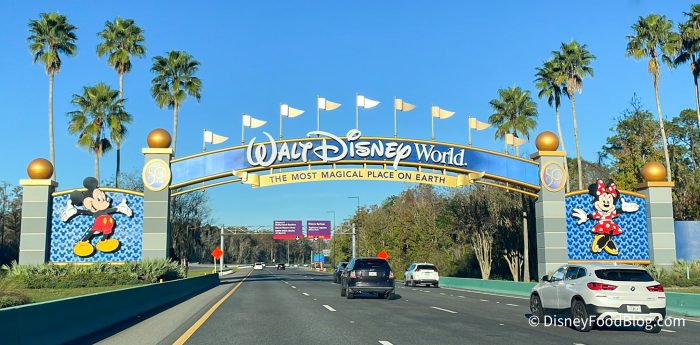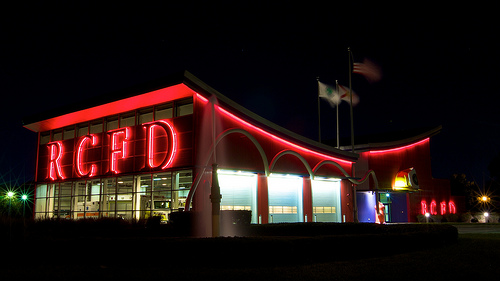Florida’s Parental Rights in Education Bill (what critics have deemed the “Don’t Say Gay” Bill) has been extensively covered by the news over the past several weeks. It’s likely something you’ve heard discussed on your local news station, or seen discussed online and a variety of news sites.
Here at DFB we’ve been sharing updates with you regarding this Bill (now law) as it relates to Disney, specifically with respect to Disney’s responses to the Bill, criticisms of Disney’s responses, and what former Disney executives, current Disney employees, and more have had to say on the topic. Most recently, Disney spoke out against the passage of the Bill and Florida’s Governor issued a response. We’ve already seen how Disney’s actions have impacted employees, Governors, and more, but now Disney’s actions and responses in relation to this Bill could have other big consequences.
Spencer Roach, a Republican Representative in Florida’s House of Representatives (representing District 79) has posted a Tweet about Disney, the “Don’t Say Gay” Bill, and some actions certain legislators are looking at taking.
According to Representative Roach, certain Florida legislators recently had a meeting (the second meeting in a week, actually) to discuss the repeal of the 1967 Reedy Creek Improvement Act, an act that is key to Disney acting essentially as its own government (more on this below). Roach said “If Disney wants to embrace woke ideology, it seems fitting that they should be regulated by Orange County.”
Yesterday was the 2nd meeting in a week w/fellow legislators to discuss a repeal of the 1967 Reedy Creek Improvement Act, which allows Disney to act as its own government. If Disney wants to embrace woke ideology, it seems fitting that they should be regulated by Orange County. pic.twitter.com/6sj29Gj6Wz
— SpencerRoach (@SpencerRoachFL) March 30, 2022
In 1967, the then-governor of Florida signed a law that created the RCID. The governor also signed some acts that ultimately formed 2 incorporated cities within the RCID — Bay Lake and Reedy Creek (Reedy Creek was later renamed to the City of Lake Buena Vista). Yes, there are legit cities within Disney World property.
RCID is a “multi-purpose district that provides essential public services, regulates building codes, land use and environmental protections, and tries to provide direction for the efficient operation of Walt Disney World property.”
Basically, an improvement district (like the RCID) acts as its own political subdivision. It functions through a Board of Directors (composed of property owners) which govern the district. On what topics is the district allowed to make decisions? Well, a lot. The district has wide authority when it comes to governing its designated area. Decision-making power covers everything from imposing taxes and adopting ordinances to contracting for professional services, pest control, and more.
The Reedy Creek website notes that the RCID is tasked with overseeing land use, providing essential services, regulating certain building codes, and operating all public roadways.
In other words, the RCID basically has jurisdiction over Disney World property, so it essentially functions like its own separate county.
Why is that so important? Well, having that level of control means that Disney has a lot more freedom and power over making decisions about things within the district. According to historian Jim Korkis, “If it wanted to, the district could build its own airport or nuclear power plant.”
That Board of Directors that governs the land? Well the Board of supervisors has to be made of landowners. But Disney owns the land in the district, right? Right. So to get around this issue, Disney sells blocks of undeveloped land to the supervisors. The supervisors then have to sell the land back to Disney when their terms are done.
Votes from the landowners are proportional to the land owned. Disney owns the land. The landowners vote the supervisors into power. You catch our drift here? The design essentially lets Disney govern its own property.
What would happen if the RCID wasn’t established? Well, Disney would have to go to county government leaders and regulators to get approval on all kinds of different internal projects. That could cause some complications, slow things down, and greatly impact what Disney is able to do.
Because of the creation of the RCID, many achievements were made that essentially wouldn’t have been possible otherwise. The creation of “EPCOT Building Codes”, the fact that Disney was able to build Cinderella Castle out of fiberglass, and Disney World’s trash system are just some of the things that were made possible because of the RCID.
If the 1967 Reedy Creek Improvement Act is repealed, as appears to be the goal of Representative Roach, that could equal dramatic changes when it comes to how Disney operates, the steps it needs to take to get certain things approved, and the actions it is able to take in the future.
Disney World’s property is located partially in Orange County, Florida and partially in Osceola County, Florida. This already impacts things like taxes, but it could also mean many more complications should the Reedy Creek Improvement District go away.
Of course, Representative Roach’s Tweet only indicates that meetings have been held with certain representatives on this topic, nothing more. Further formal action would need to be taken to actually repeal the Act that created the RCID, and those actions would take time. Still, the mere threat of this type of action is not necessarily great news for Disney. We’ll continue to keep an eye out for any updates and let you know what we see.
To see another discussion on the RCID, check out our video below about why Disney World is basically its own country. And check back for more updates.
Click here to learn about 6 times Disney fought the law…and WON
Join the DFB Newsletter to get all the breaking news right in your inbox! Click here to Subscribe!
The post Could a Critical Aspect of How Disney World Operates Be in Jeopardy? We Dig In first appeared on the disney food blog.











 (@disneys.neverland.delivery)
(@disneys.neverland.delivery)




























































